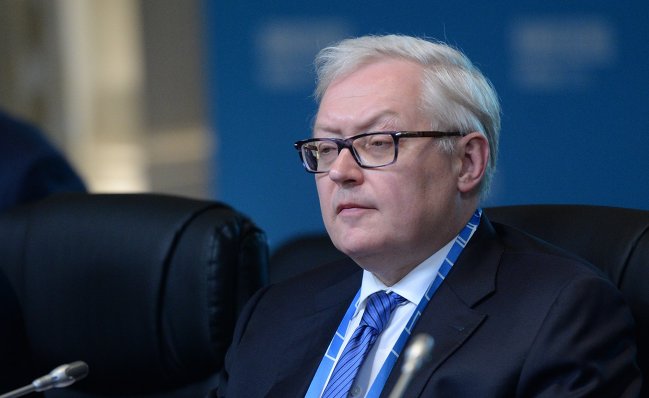
Russia intends to turn BRICS into fully-fledged cooperation mechanism
In an interview with the magazine Mezhdunarodnaya Zhizn ("BRICS Ufa-2015" special issue), Deputy Foreign Minister and Russia's Sherpa in BRICS Sergei Ryabkov said that the long-term goal of Russia and its partners in BRICS is to turn the association into a fully-fledged mechanism of strategic and ongoing cooperation on key issues in world politics and the global economy. He said that Russia's Presidency in BRICS marks a major step on this road.
"The main feature of BRICS is its modern character. It meets the demands for a polycentric system that reflects the diversity of the modern world's cultures and civilisations. The BRICS countries are motivated to cooperate in the interests of their nations, in the name of building a more just and democratic international system," he said.
Mr Ryabkov emphasised the association's meaningful role in international affairs. "Cooperation in this format was launched recently but it has already become a major element of global governance," he said. He believes the fact that the members belong to different civilisations makes BRICS particularly stable and more authoritative. "The BRICS interstate association is probably the most dynamic international structure - it is consolidating its positions faster than anyone else," Mr Ryabkov said. "It fully meets the demands of the 21st century for cooperation to be rooted in equality and consensus."
Mr Ryabkov said bolstering global security and stability is a high priority for BRICS. "The BRICS countries proceed from the premise that stability should be reliable and security indivisible and firmly guaranteed. It is unacceptable for one's own security to come at the expense of the security of others," he said.
Mr Ryabkov noted that the BRICS list of priorities includes formulating collective responses to such threats as international terrorism, separatism, extremism, drug-trafficking and cross-border crime.
Speaking about financial cooperation in BRICS, Mr Ryabkov said that the decisions to establish the New Development Bank and the Contingent Reserve Arrangement represent a significant contribution to the modernisation and democratisation of international financial and economic relations. "These mechanisms are designed to stabilise national financial markets in the event of global economic crises," he said.
Mr Ryabkov noted that the BRICS countries are successfully developing ties in trade and the economy, environmental protection and healthcare.
In closing, he noted that that Russia's Presidency in BRICS includes plans for the members to work more closely in the mining and energy industries and telecommunications. New areas of cooperation are to include migration policy, culture, youth policy, technical supervision and international development. They also plan to carry out joint projects in science and education.